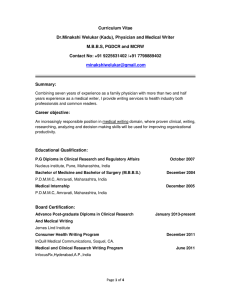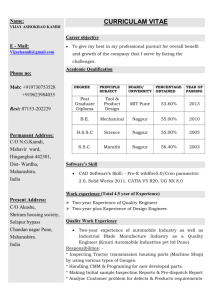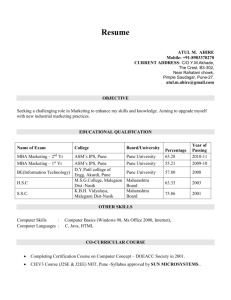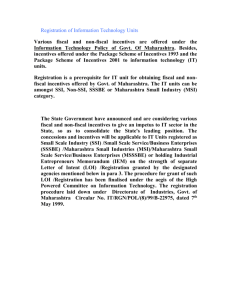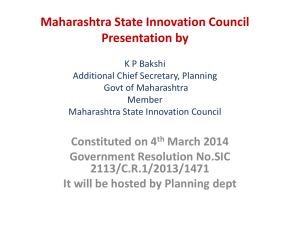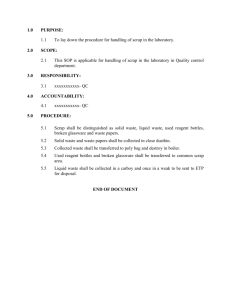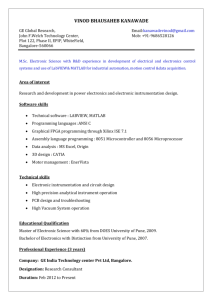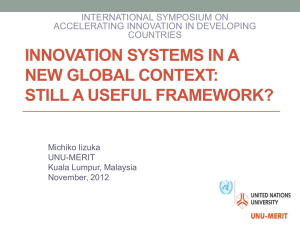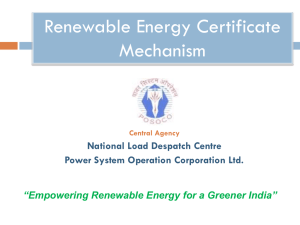India Waste Pickers - ITCILO E
advertisement
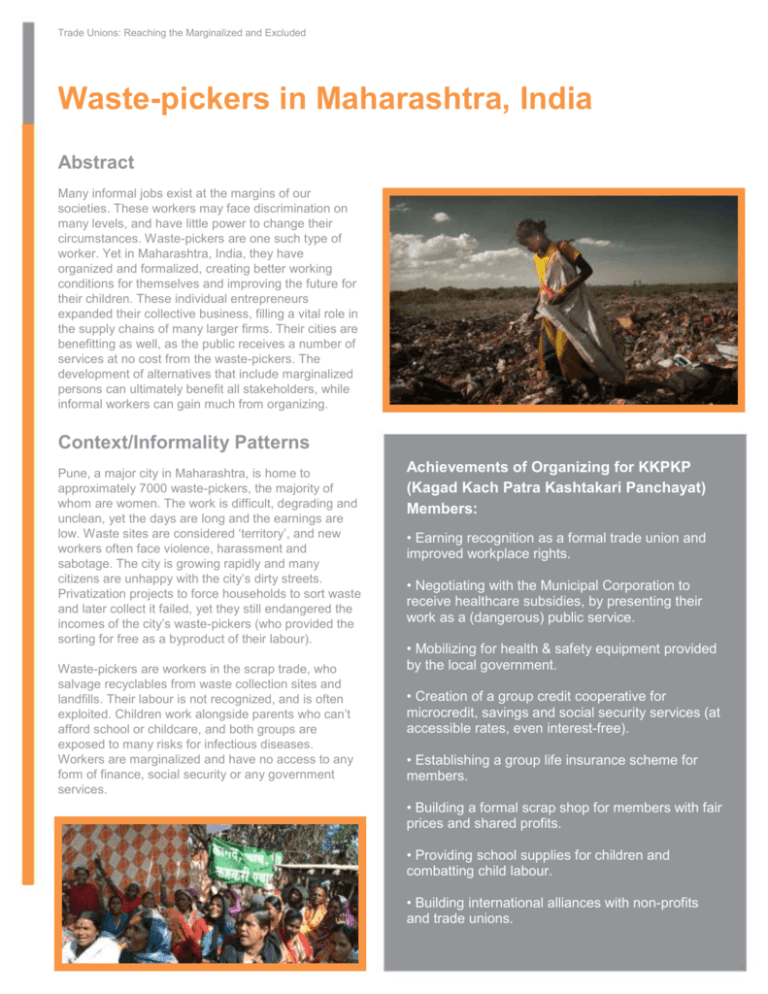
Trade Unions: Reaching the Marginalized and Excluded Waste-pickers in Maharashtra, India Abstract Many informal jobs exist at the margins of our societies. These workers may face discrimination on many levels, and have little power to change their circumstances. Waste-pickers are one such type of worker. Yet in Maharashtra, India, they have organized and formalized, creating better working conditions for themselves and improving the future for their children. These individual entrepreneurs expanded their collective business, filling a vital role in the supply chains of many larger firms. Their cities are benefitting as well, as the public receives a number of services at no cost from the waste-pickers. The development of alternatives that include marginalized persons can ultimately benefit all stakeholders, while informal workers can gain much from organizing. Context/Informality Patterns Pune, a major city in Maharashtra, is home to approximately 7000 waste-pickers, the majority of whom are women. The work is difficult, degrading and unclean, yet the days are long and the earnings are low. Waste sites are considered ‘territory’, and new workers often face violence, harassment and sabotage. The city is growing rapidly and many citizens are unhappy with the city’s dirty streets. Privatization projects to force households to sort waste and later collect it failed, yet they still endangered the incomes of the city’s waste-pickers (who provided the sorting for free as a byproduct of their labour). Waste-pickers are workers in the scrap trade, who salvage recyclables from waste collection sites and landfills. Their labour is not recognized, and is often exploited. Children work alongside parents who can’t afford school or childcare, and both groups are exposed to many risks for infectious diseases. Workers are marginalized and have no access to any form of finance, social security or any government services. Achievements of Organizing for KKPKP (Kagad Kach Patra Kashtakari Panchayat) Members: • Earning recognition as a formal trade union and improved workplace rights. • Negotiating with the Municipal Corporation to receive healthcare subsidies, by presenting their work as a (dangerous) public service. • Mobilizing for health & safety equipment provided by the local government. • Creation of a group credit cooperative for microcredit, savings and social security services (at accessible rates, even interest-free). • Establishing a group life insurance scheme for members. • Building a formal scrap shop for members with fair prices and shared profits. • Providing school supplies for children and combatting child labour. • Building international alliances with non-profits and trade unions. Waste-pickers in Maharashtra, India Methodology/Solutions The KKPKP (Kagad Kach Patra Kashtakari Panchayat) began after an informal meeting in Pune, where many wastepickers complained about their situation. After organizing as the KKPKP, the group first sought formal trade union status to have more capacity in the city. After this first success, they began to grow and build influence. The wastepickers met often and shared stories of their experiences, which built a shared identity throughout the workers. Soon, they would mobilize to pressure the local government through public demonstrations and research conducted by larger organizations. They mobilized for access to state resources, as well as to private household collection contracts that damaged their incomes. Inside the organization, members resolved disputes and created new cooperative businesses. The KKPKP created a member-owned scrap store and microfinance business, and formed national and international alliances with nonprofits and trade unions. Members have travelled to Europe, Brazil, Nepal, Egypt, Thailand and many cities in India to develop their skills, share their experiences and bring visibility to waste-picking at the international level. Results As an organization, the KKPKP has achieved victories that used to be unthinkable for its members. Recognition as a formal trade union expanded the ability of the group to pursue their interests. By negotiating and campaigning strongly, the KKPKP won healthcare coverage for all of its members from the municipality where they worked. They also gained protective equipment to improve their working conditions. Children were forced off of waste sites, and families were provided the means to enroll them in schools. School supplies, bicycles and bus passes, and funding for disabled children are also provided to the children. Violence between waste-pickers has been reduced to almost zero. Because of their formal status, the workers were able to create a scrap shop and microfinance institution for themselves, and could partner with a formal-sector insurance company to provide coverage to all of KKPKP’s members. Many of the newly-formalized workers have seen their incomes double, or more, since the creation of the KKPKP. Key Lesson Points Organization can lead to formalization of informal workers As workers formalize, they have greater capacity to improve the conditions of their work and their lives o Unions and cooperatives can help the marginalized build capacity Waste-pickers provide a valuable public service in cities o The public receives benefits without paying taxes for them Formalization and new enterprises can be created at no cost through alternative development o Coordinate, reorganize existing systems into profitable, sustainable programs FORMAL ORGANIZING CAN UNLOCK MANY NEW OPPORTUNITIES FOR INFORMAL WORKERS KKPKP Website: http://www.wastepickerscollective.org/ 89 New Timber Market Bhavan Peth 411012 Pune Maharashtra P: +91 976 540 4040 KKPKP members at their 2012 National Convention in Pune, Maharashtra. Chikarmane, P., & Narayan, L. (2000, October). Formalising Livelihood: Case of Wastepickers in Pune. Economic and Political Weekly, 35(41), 3639-3642.
